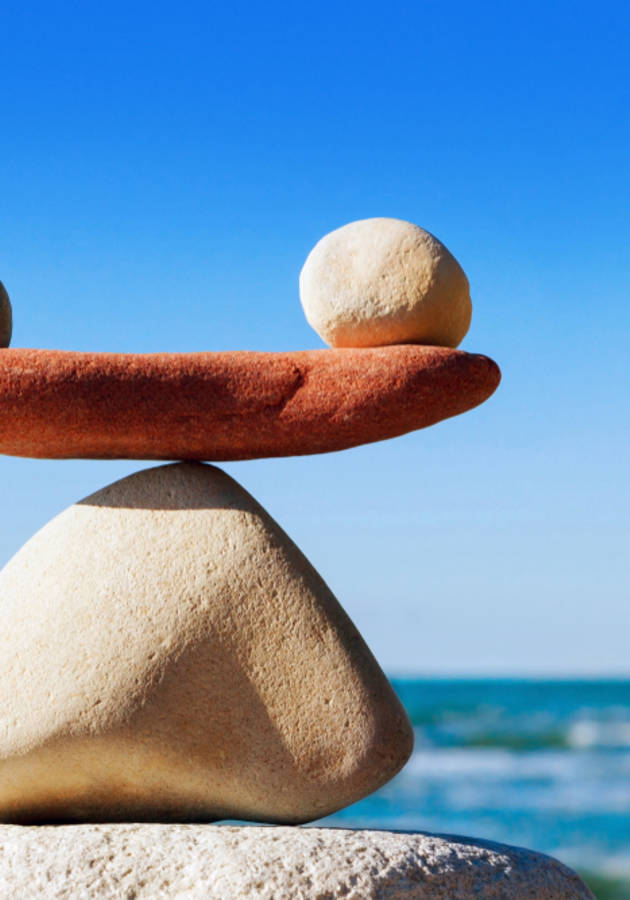There’s probably nobody as famous as Jordan Peterson in the intellectual world nowadays.
Which means that each and every one of his moves is closely inspected by a host of people – both his two million (and counting) active followers and as numerous criticizers.
12 Rules for Life, however, is a much lighter and less controversial read than we’ve come to expect from Peterson.
It feels mainly aimed at teenagers and young people who are trying to battle their way through life.
It’s also worth mentioning that he receives some criticism regarding his audience's male-majority demographics.
In the middle of this tension, he became an Internet celebrity, propelled by his argumentation against the Canadian government’s Bill C-16.
Anyway, let’s cut to the chase.
Rule 1: Stand up straight with your shoulders back
For his first rule, Jordan Peterson casts a cold look upon the nature and the “society” of the lobsters. But you probably already know this, since it has already been made stupendously famous via his debate with Cathy Newman.
The main reason for the analogy: the basic chemistry of a lobster’s brain is not that different from the chemistry of your brain.
And we know for a fact that, after a fight, “a loser lobster’s brain chemistry differs importantly from that of a winner lobster.” And this is “reflected in their relative postures,” which depend on the serotonin-octopamine ratio: more from the former makes you stand up straight and fills you with confidence.
Rings a bell?
It should – if it doesn’t.
Because it essentially echoes Amy Cuddy’s exceptionally popular TED Talk: “Your Body Language Shapes Who You Are.”
Now, the rule makes much more sense. If octopamine makes you slouch when you’re feeling bad, then stand up straight and the serotonin will start flowing.
What you ought to do is to quit drooping and hunching around and speak your mind at every opportunity. Don’t neglect your desires – put them at the forefront of your actions. This will also encourage you to take more bold steps, which subsequently increases serotonin levels in your brain.
Rule 2: Treat yourself like someone you are responsible for helping
We live in a scientific and materialistic world, and we are pitifully unaware of the fact that there are different ways to understand it.
However, for most of history (back to, say, Newton) humans understood it in a profoundly different way, e.g., via myths. And myths had the power to give their lives some meaning and orientation.
Now, interestingly enough, the fact that we are aware that the universe has no obligation to make sense to us (Neil deGrasse Tyson), makes us cruel to, well, ourselves.
We are capable of inventing meaning even for our dogs and cats – but we are incapable of doing the same for us. And statistics show this: people are better at filling and properly administering prescription medication to their pets than to themselves.
And, as Peterson says, that’s not good. Even from your pet’s perspective, it’s not good. Your pet (probably) loves you and would be happier if you took your medication.
Peterson analyzes the Genesis’ stories in order to find an answer to why do we prefer our pets over ourselves. And, after a few pages which concentrate on the order-chaos dichotomy, he finds it.
How is this related to Peterson’s second rule?
Well, if you believe your life has a “Meaning” – with a capital M – then you will have to treat yourself as someone who deserves it. And if that’s the case, you will be able to recognize your problems.
And act on them accordingly.
Just like you would your dog’s.
Rule 3: Make friends with people who want the best for you
It’s a highly personal lesson dipped in Jordan Peterson’s childhood experiences.
And as simple and obvious as a lesson can get – friendship is a reciprocal arrangement.
Peterson goes on to explain that by no means you are morally obliged to support someone who is making the world a dangerous place to live. In fact, the opposite is true. You should be very selective about your inner circle and, even if it seems selfish, adhere to this principle. Associate only with those whose efforts are in line with your norms and thoughts.
People who don’t want to improve are not exactly people you want to be around. By definition, they can’t be helped. They will merely drag you down to their level to make themselves feel better, using you as an object instead of a human being (contra Kant).
If you spend your time around them, you are not helping yourself and, thus, you are not helping the world either.
Because the people who don’t want to improve are the same people that will give a cigarette to a former smoker or beer to a former alcoholic.
They don’t want to make the world a better place by improving; they want to make the world a worse place and, thus, simulate improvement.
To hell with them!
Make friends only with people who want the best for you, people you’d easily recommend to others for.
Rule 4: Compare yourself to who you were yesterday, not to who someone else is today
We’ve told you before that happiness is not an adrenaline rush.
In other words, that how you feel at this moment depends not on how close you are to some definitive state of things (e.g., "Happiness"with a capital H), but on how better off you feel when compared to those around you.
Regardless of happiness not being exactly Peterson’s cup of tea, it’s a fact that, for millennia, this may have worked for people in one way or another.
Nowadays, it’s all but a recipe for success!
Why?
Because, nowadays, the media and the Internet continuously feed you with images and news about the best of the very best.
And it’s only sensible to come to terms with a simple fact: no matter how good you are, there will always be someone better out there.
Look at it this way: millions of kids are at the moment playing basketball and dreaming of becoming the next LeBron; only a handful or one or even no one will do that!
What does that leave for the rest of the bunch?
Misery.
That’s why Jordan Peterson advises you to introduce a Copernican Revolution inside your existence. It’s time to stop being the object revolving around some objects with a stronger mass; it’s time to become the object which everything else revolves around.
In other words: don’t compare yourself to other people; compare yourself with, well, yourself from yesterday. If you’re better than that guy – then you are on the right track!
Rule 5: Do not let your children do anything that makes you dislike them
Parenting is an art.
And the most artful part about it is learning – and, then, communicating – the rules of it.
It’s only obvious that not everybody can be a good parent. What separates the good from the bad is their capability to guide their children on the road of improvement.
That happens because children are born into chaos. They learn the rules of life by continually hitting walls – both literally and metaphorically.
A parent’s job is to organize the metaphorical part of his or her child’s existence in a way which will give it some meaning.
And that, in Peterson’s dictionary, doesn’t mean “happiness.”
After all, a child will always feel a little happier when given a candy; but that doesn’t mean that you should give candies to your child all the time.
The purpose of a parent is to conflate the chaos of the child’s world and the order of society and act accordingly.
If a child receives no feedback, then the chaos he or she is born into will permeate well into his or her adulthood; and society will punish him or her, much less mercifully than the parents.
However, if it receives too much feedback, then the order will limit too much its potential; society will punish that as well.
The lesson here: set clear rules and proper discipline for your children, because, if you don’t, society will.
Rule 6: Put your house in order
This Jordan Peterson’s rule goes back to Voltaire’s Candide.
If you recall, the book ends with a conviction that the only way to counter the evils of this world is by cultivating your own garden. That way, Voltaire believed, you can free yourself of the “three great evils: boredom, vice, and poverty.” And contribute to a better future for everybody.
Jordan Peterson rephrases the idea in this way: put your house in order before you are set on to reorganize the world.
Don’t blame other people for your own troubles, because it seems likely that you haven’t taken advantage of every opportunity in your way.
"Don’t blame capitalism, the radical left, or the iniquity of your enemies," Peterson continues. You must put the accent on your individuality, as the only propeller of both suffering and prosperity. Meanwhile, try to keep both feet on the ground and let your morality have its turn.
The actionable lesson would revolve around “stop doing what you know to be wrong.”
Rule 7: Pursue what is meaningful, not what is expedient
Life is suffering.
Many ancient religions and mythologies have tried articulating that “life is suffering” in some of the most famous stories we have inherited from our ancestors.
There’s no way around it: no matter what happens, one day the people you love will inevitably die, and you will as well.
There’s an easy solution to this problem: hedonism. Pursue pleasure and follow your impulses. Live for the moment. Do what’s expedient. Lie, cheat, steal, deceive, manipulate – but don’t get caught. In an ultimately meaningless universe, what possible difference could it make?
However, there’s also a more difficult answer, one that makes much more sense. Namely, if suffering is real – and no one can deny that – and if it is painful to live with suffering, then certainly the worst thing you can do is cause someone else to suffer.
And we know this intuitively: even if we don’t know what is good, says Peterson, we certainly know a priori, what is bad.
Well, “Meaning” – once again, with a capital M – must be doing good; and doing good is the negation of doing bad.
“If the worst sin is the torment of others, merely for the sake of the suffering produced – then the good is whatever is diametrically opposed to that. The good is whatever stops such things from happening.”
(No, that’s not diametrically opposite of tormenting others, Jordan.)
Rule 8: Tell the truth
This rule is Jordan Peterson’s gospel to the truth.
In Jordan’s words – "the truth is the genuine antidote to chaos; something that feeds and clothes the poor, builds prosperity and reduces complexity. It is the light that looms in the darkness."
In other words, just like God does at the beginning of John’s Gospel, we too have the power to organize the chaos of the world into something much more tangible.
Lies are only temporary and do service only to those who use them to manipulate. Truths don’t serve anyone per se. They can’t, since they are as they are, regardless of our interests and feelings.
So, they serve the world.
Your duty – Tell the truth. Or, at least, don’t lie. Oh, if only it were as easy.
Rule 9: Assume that the person you are listening to might know something you don’t
This one’s pretty much self-explanatory.
If you are merely telling somebody something, then the existence of that person is irrelevant. You might as well be talking to yourself in the mirror.
The problem?
You’ll never get anywhere with that kind of attitude.
And for a simple reason: you are sabotaging your own improvement. You can't possibly know as much as you think you do – no matter who you are.
So, why don’t you start learning something from those around you?
Instead of a talker, become a listener. You’ll do your talking later. In the meantime, you actually may learn something.
Rule 10: Be precise with your speech
If you talk about something you don’t understand, then you are contributing to the chaos which engulfs the world.
You must confront it!
Precision and specificity – just like truth, turn the chaos into something treatable.
If you don’t know the specific destination you want to reach, there’s no way you’ll ever reach it. And being ambiguous about something is not much different from providing a wrong map for someone and telling him/her that following it will lead him/her to the right location.
Obviously, that will never happen.
Rule 11: Leave Children alone when they are skateboarding
Overlook now, lefties: this is the part you are unquestionably not going to like at all!
It starts quite innocently as modern parenting is overprotective. And it is: overprotectiveness parenting is called “helicopter parenting,” it risks raising children who are not prepared for life but protected from it.
So far, so good.
However, according to Jordan Peterson, there’s a difference in what overparenting means for boys and what it means for girls.
Why?
Because boys and girls are different; and because, thanks to overparenting, they would develop their sexual differences even more visible.
So, let them do!
Why should we feminize boys and masculinize girls – when their differences are so natural? After all, women don’t want boys, they want men.
Nonetheless, you have to factor in and take into account a lot of things before you make up your mind.
How do you know when to put your foot down?
Rule 12: Pet a cat when you encounter one on the street
So, all in all, suffering is an inescapable part of life.
There are two paths you go from here: either you are going to blame the universe, or take the sins of the world upon yourself.
If the former was your choice, you are never going to be happy; you’ll become resentful and bitter and a pain to be around.
If the latter, there are once again two paths to choose from: either you are going to be smashed by the burden, or you are going to stand up straight and carry it.
And the best way to deal with your burden is to pet a cat when you encounter one. That means enjoying the beautiful and good little things happening all the time around you.
Final Notes
Jordan Peterson’s 12 Rules for Life will, undoubtedly, help some; it will also, undoubtedly, irk others.
You can interpret it in so many different ways, but the main point is to put the words and theories into perspective, and get the big picture.
Reshaping your life is no picnic, but it can come with a tremendous load-off.
12min Tip
While we are it, we encourage you to watch some of Jordan Peterson videos and get a bird’s eye view on what his views are.





























